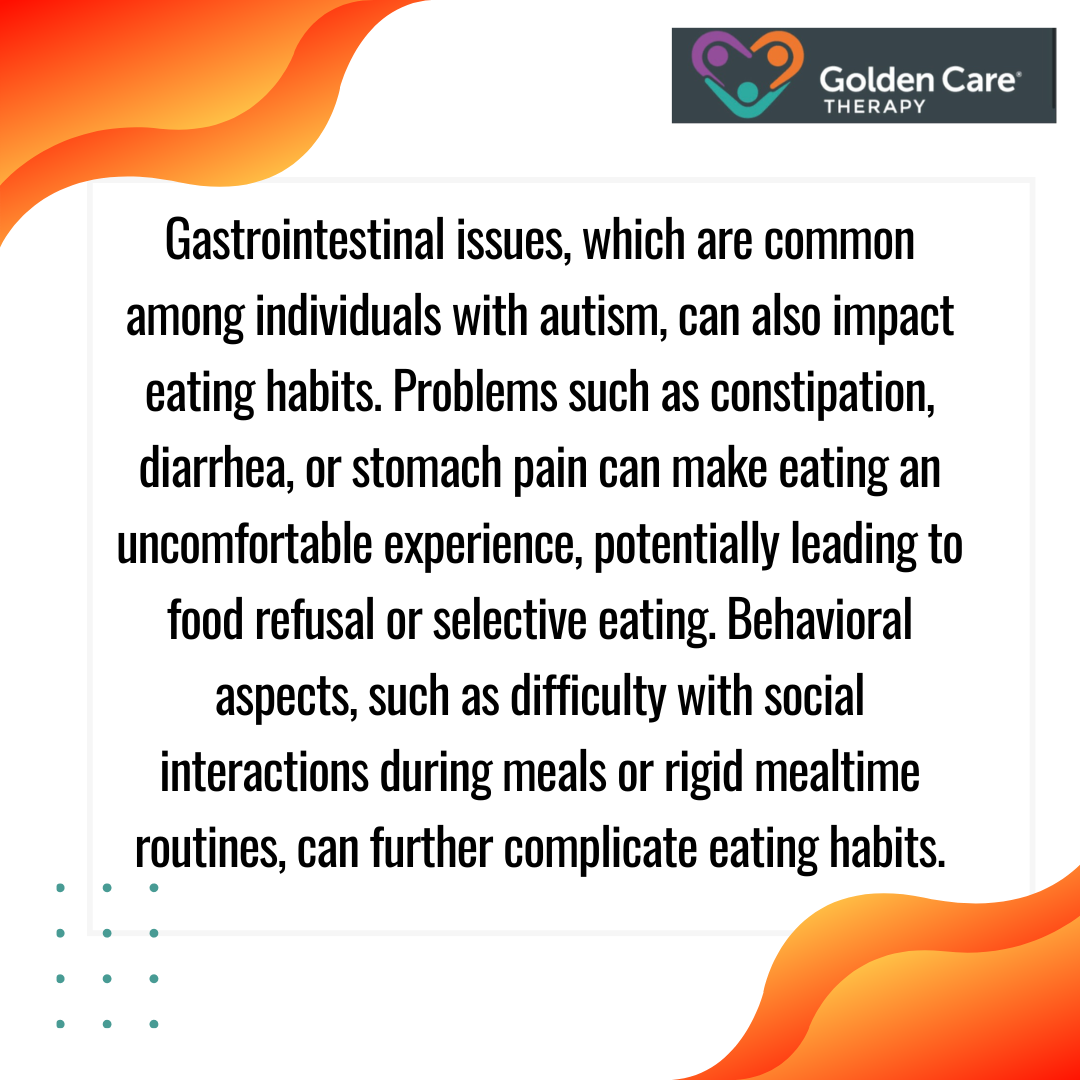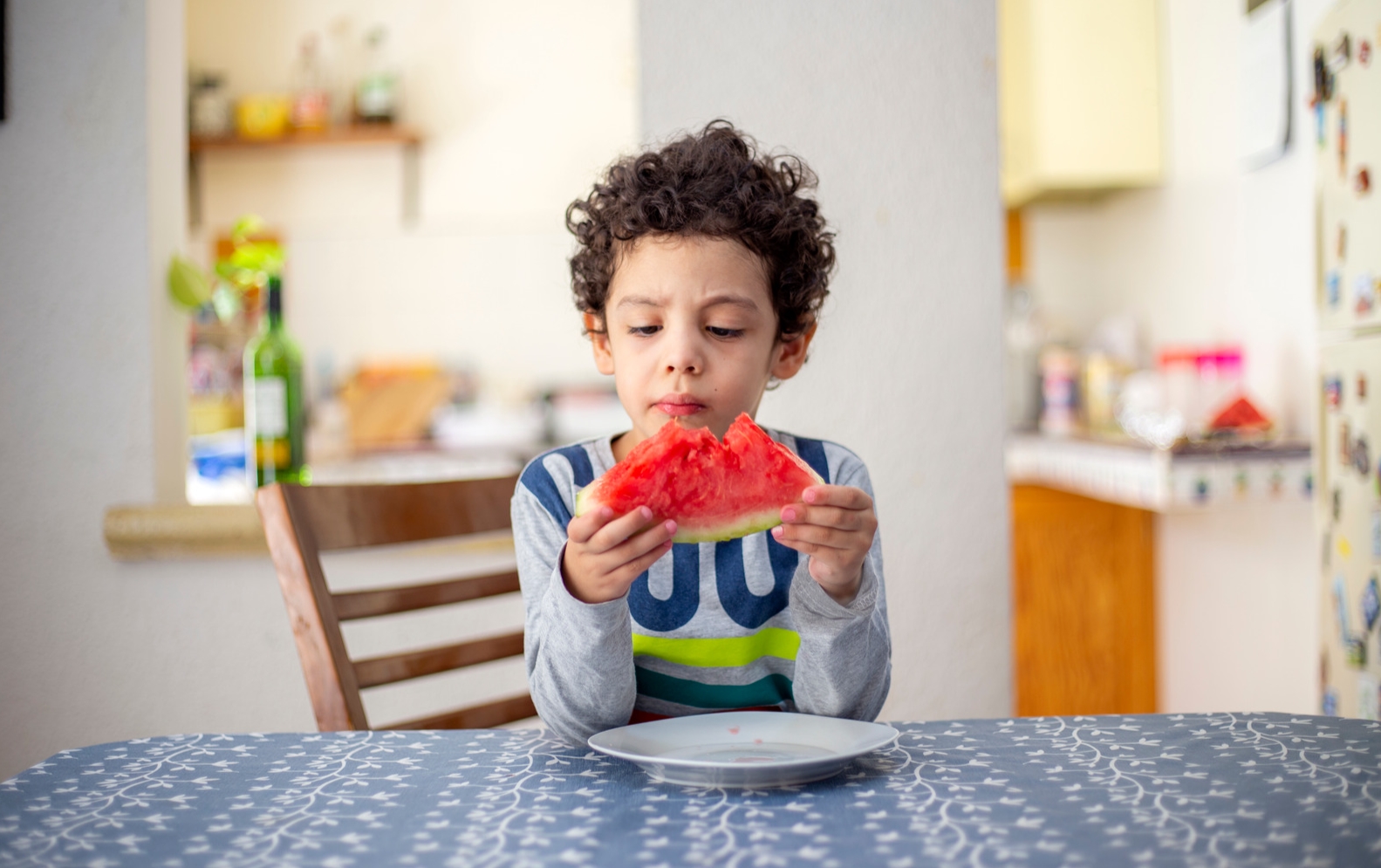One area that’s significantly impacted by autism is eating habits. Many individuals with autism experience unique challenges related to food and eating, which can vary widely from one person to another. These challenges can include extreme picky eating, strong preferences for certain textures or tastes, and even aversions to specific foods or eating environments.
Understanding these eating behaviors is crucial for caregivers, educators, and healthcare providers to support individuals with autism effectively.

Does Autism Affect Eating Habits?
Yes, autism can affect eating habits. Many individuals on the autism spectrum experience food sensitivities and aversions, leading to selective eating or preferences for certain textures, colors, or flavors. Sensory sensitivities can make certain foods overwhelming or unappealing, causing them to avoid these foods.
Additionally, routines and the need for sameness can influence their eating habits, leading to a preference for familiar foods and resistance to trying new ones.

Overall, autism’s influence on eating habits can be significant and varies widely among individuals.
Sensory Sensitivities and Eating
One of the primary reasons why eating habits can be so different for individuals with autism is due to sensory sensitivities. Sensory processing issues are common in autism, meaning that individuals may have heightened or diminished responses to sensory stimuli. These responses can extend to food, affecting how textures, tastes, smells, and even the appearance of food are perceived.
For some individuals with autism, certain textures can be overwhelming or unpleasant. For instance, a child might refuse to eat foods that are mushy or slippery, such as mashed potatoes or certain fruits, because the texture feels uncomfortable or even intolerable.
Conversely, others might prefer these textures and reject foods that are crunchy or hard. These preferences can lead to a very limited diet, often referred to as selective or picky eating.
Taste sensitivities are also common. Some children and adults with autism might have an extreme preference for sweet or salty foods and avoid bitter or sour flavors. This can make it challenging to introduce a balanced diet that includes a variety of nutrients.

Behavioral and Psychological Factors
Beyond sensory issues, behavioral and psychological factors also play a significant role in the eating habits of individuals with autism. Routine and predictability are often very important to those on the spectrum. Changes in routine, including meal times, can cause significant distress.
As a result, some individuals may develop strict food rituals, insisting on eating the same foods prepared in the same way at the same time every day.
Food neophobia, or the fear of trying new foods, is another common challenge. This fear can be particularly pronounced in individuals with autism, making it difficult to introduce new foods into their diet. This behavior is not merely a preference but can be a source of anxiety and stress, impacting overall health and nutrition.
Social and Environmental Influences
The social aspects of eating can also be challenging for individuals with autism. Many children with autism find social interactions difficult and overwhelming, which can extend to meal times. Eating in a noisy, crowded cafeteria at school or a busy restaurant can be a stressful experience, leading to refusal to eat in such environments.
Furthermore, individuals with autism might struggle with the social norms and expectations around eating.
For example, understanding and adhering to table manners, eating at a designated time, or participating in family meals can be difficult. These challenges can lead to mealtime becoming a battleground rather than a pleasant experience.

Nutritional Concerns
The eating habits of individuals with autism can lead to significant nutritional concerns. Picky eating and a limited diet can result in deficiencies in essential nutrients such as vitamins, minerals, and proteins.
For example, children who refuse to eat fruits and vegetables might miss out on important vitamins like A and C, while those who avoid meat might lack sufficient protein and iron.
Moreover, some individuals with autism may only eat processed or junk foods, which are often high in sugar, fat, and salt but low in nutritional value. This can contribute to issues like obesity, diabetes, and other health problems. It is essential to address these nutritional gaps to ensure the overall health and well-being of individuals with autism.
Interventions and Strategies
Addressing the unique eating habits of individuals with autism requires a multifaceted approach. Early intervention is key, as is involving a team of professionals, including pediatricians, dietitians, occupational therapists, and behavioral therapists.
One effective strategy is to gradually introduce new foods in a non-threatening and supportive manner. This might involve pairing new foods with familiar favorites, starting with small portions, and gradually increasing the amount as the individual becomes more comfortable. Encouraging a positive association with new foods can help reduce anxiety and resistance.
Behavioral interventions can also be beneficial. Applied Behavior Analysis techniques, for example, can be used to reinforce positive eating behaviors and reduce negative ones. This might involve using rewards and positive reinforcement to encourage trying new foods or sitting at the table during meal times.
Creating a structured and predictable mealtime routine can also help reduce anxiety and improve eating habits. This might include having meals at the same time each day, using the same utensils and plates, and minimizing distractions during meals.
Sensory Integration Techniques
For those with significant sensory sensitivities, sensory integration techniques can be helpful. Occupational therapists often work with individuals with autism to help them become more comfortable with different textures, tastes, and smells. This might involve sensory play activities that expose individuals to various sensory experiences in a controlled and gradual manner.
For example, a therapist might use a play activity involving different textured foods, allowing the child to touch, smell, and eventually taste these foods without pressure. Over time, this can help desensitize the child to certain textures and reduce aversions.
Family Involvement and Support
Family involvement is crucial in managing and improving the eating habits of individuals with autism. Parents and caregivers need to be educated about the unique challenges their child faces and be given practical strategies to support their child. This might include attending workshops, working with professionals, and implementing consistent routines and strategies at home.
Support groups and networks can also provide valuable resources and emotional support for families. Sharing experiences and strategies with other parents can be incredibly beneficial and provide new ideas and approaches to try.
The Key Takeaway
Autism significantly affects eating habits in a variety of ways, from sensory sensitivities and behavioral challenges to social and environmental influences. Understanding these unique challenges is essential for providing the necessary support and interventions to ensure individuals with autism can develop healthy eating habits and receive the nutrition they need.
While the challenges can be significant, there are many effective strategies and interventions that can help.
With the right support, individuals with autism can overcome many of the eating-related challenges they face and lead healthy, fulfilling lives. Golden Care Therapy offers specialized ABA therapy in NY, Indiana, New Jersey, Georgia, and Florida. For more information or to schedule a consultation, please contact usso you can book an appointment directly.
Sources:
https://exceptionalindividuals.com/about-us/blog/autism-eating-habits-and-behaviours
https://childmind.org/article/autism-and-picky-eating
https://www.autismspecialtygroup.com/blog/autism-eating-habits
https://www.verywellhealth.com/connections-between-autism-and-nutrition-4155118
https://www.autismspeaks.org/expert-opinion/autism-and-eating-behaviors-child-only-eats-junk-food



